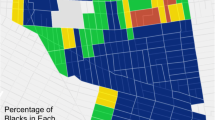Abstract
In the late spring of 1876, a Kansas farm woman, Henrietta Cook, was brought to trial and found guilty of deliberately and maliciously poisoning her husband with strychnine. A close reading of the evidence today would suggest that the jury could just as easily have found Mrs. Cook innocent of the crime. But they did not. Out of the cultural and ideological materials at hand the jury actively fashioned a truth that allowed them to deal with the heinous crime of marital murder. Drawing on Foucault, the article shows how and why one form of discourse or truth came to triumph at the trial. In the lonely frontier settlement of Osborne, Kansas, people made a clear distinction between nature, which they were trying to overcome, and civilization, which they were trying to impose. The trial demonstrated what happened when nature, in the form of the woman, Henrietta Cook, challenged not only the fragile definition of community that had been constructed, but also the vocabularly of order, rationality, and progress that gave people hope. A voice with another message could not be heard.
Similar content being viewed by others
References
Bachelard, Gaston 1968 The Philosophy of No. New York: Orion Press.
Bernard, Jessie 1981 The Female World. New York: The Free Press.
Cohn, David L. 1943 Love in America. New York: Simon and Schuster.
circa 1883 “Letter to Governor Glick.” Letters of Governor Glick. Topeka, Kansas: Kansas State Historical Society.
1888 “Letter to Governor Martin.” (January 23) Letters of Governor Martin. Topeka, Kansas: Kansas State Historical Society.
Darnton, Robert 1984 The Great Cat Massacre. New York: Basic Books.
1973 Madness and Civilization. New York: Vintage Books.
1977a Language, Counter-Memory, Practice. Ithaca: Cornell University Press.
1977b “Prison talk” (interview). Translated by Colin Gordon. Radical Philosophy 16:10–15.
1874 Third Annual Report of the State Board of Agriculture. Topeka, Kansas: State Printer.
1875 Fourth Annual Report of the State Board of Agriculture. Topeka, Kansas: State Printer.
Kurzweil, Edith 1980 The Ago of Structuralism: Levi-Strauss to Foucault. New York: Columbia University Press.
Lemert, Charles C. and Garth Gillan 1982 Michel Foucault: Social Theory and Transgression. New York: Columbia University Press.
McNall, Sally A. 1981 Who Is in the House?: A Psychological Study of Two Centuries of Women's Fiction in America, 1795 to the Present. New York: Elsevier.
McNall, Scott G. 1983 “Foreward” to Howard Ruede, Sod-House Days: Letters from a Kansas Homesteader, 1877–78. Lawrence, Kansas: University of Kansas Press.
McNall, Scott G. and Sally A. McNall 1983 Plains Families: Exploring Sociology through Social History. New York: St. Martin's Press.
1984 “Interview,” with the family of Daryl Thornburg, great grandson of Henrietta Cook. Lawrence, Kansas: unpublished.
Malin, James C. 1935 “The turnover of farm population in Kansas.” Kansas Historical Quarterly 4:339–372.
Neill, John and Francis Gurney Smith 1852 An Analystial Compendium of Medical Science. Philadelphia: Blanchard Lee.
Osborne County Farmer 1876–1877Osborne County Farmer. Osborne, Kansas: January 28, May 26, June 23, and July 7, 1876; May 25, 1887. (Available on microfilm from the Kansas State Historical Society, Topeka, Kansas.)
Osborne District Court 1876 Record for the June term, 1876. This hand-copied transcript was edited by Scott G. and Sally A. McNall. The page references to the trial transcript refer to this document. Lawrence, Kansas: unpublished.
Rajchman, John 1983/84 “The story of Foucault's history.” Social Text 8:3–24.
Reynolds, John N. 1890 The Twin Hells. Chicago: Bee Publishing Co.
Smith, J.S. circa 1883 “Letter,” to Governor Glick. Letters of Governor Glick, Topeka, Kansas: Kansas State Historical Society.
Smith, John H. 1888 “Letter” to Governor Martin. Letters of Governor Martin. Topeka, Kansas: Kansas State Historical Society.
Topeka Daily Capital 1889Topeka Daily Capital. Topeka, Kansas: September 5. (Available on microfilm from the Kansas State Historical Society, Topeka, Kansas.)
Author information
Authors and Affiliations
Additional information
I would like to thank Gisela Hinkle, Sally A. McNall, Mary Candace Moore, and Shulamit Reinharz, as well as the three anonymous reviewers ofQualitative Sociology, for their insightful remarks and helpful suggestions.
Rights and permissions
About this article
Cite this article
McNall, S.G. “It was a plot got up to convict me”: The case of Henrietta Cook versus the state of Kansas, 1876. Qual Sociol 9, 26–47 (1986). https://doi.org/10.1007/BF00988247
Issue Date:
DOI: https://doi.org/10.1007/BF00988247




